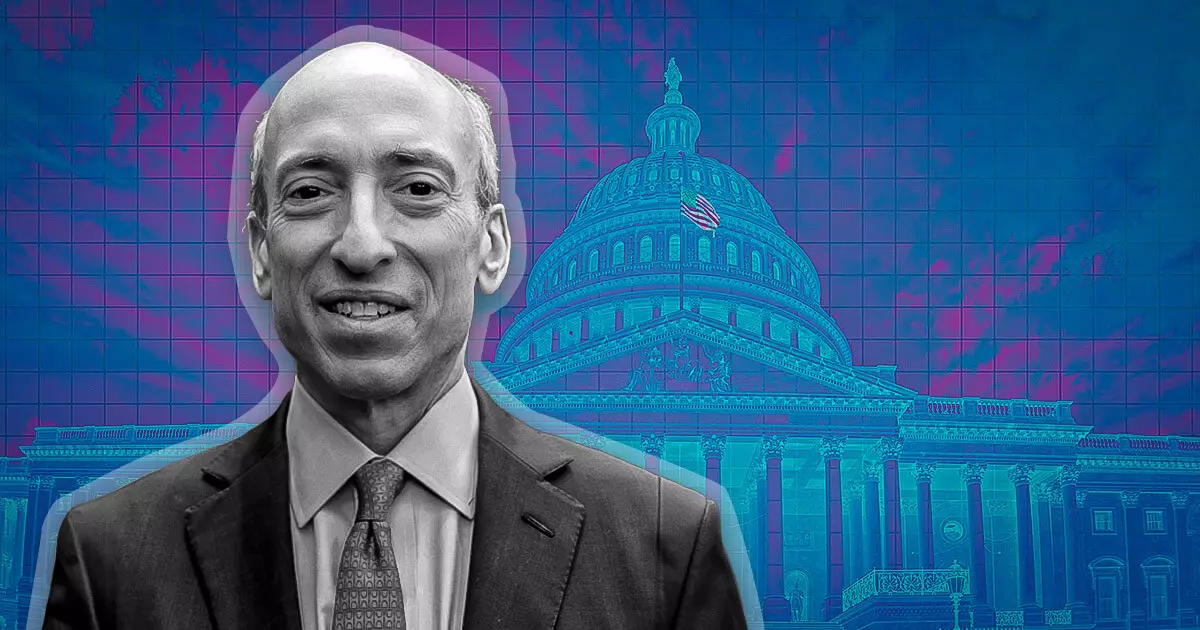The Securities and Exchange Commission (SEC) has long been a pivotal figure in the financial regulation landscape of the United States, safeguarding investor rights and ensuring market integrity. However, under the leadership of Chair Gary Gensler, the SEC has faced serious accusations ranging from overreach to malfeasance, particularly in the burgeoning area of cryptocurrency. Former Olympic athlete and co-founder of the Gemini crypto exchange, Tyler Winklevoss, recently voiced his discontent, arguing that Gensler’s actions were neither inadvertent nor benign, but rather calculated moves aimed at advancing a personal agenda. This article will explore the implications of Gensler’s approach to crypto regulation, the responses from industry figures like Winklevoss, and the broader landscape of regulatory power.
Winklevoss’s criticism of Gensler highlights a growing sentiment among crypto advocates that regulatory actions under Gensler’s regime have intentionally stifled innovation within the industry. Winklevoss dubbed Gensler’s methods as “evil,” asserting that his policies have inflicted damage not only on the crypto market but also on countless jobs and investments reliant upon its growth. This rhetoric illustrates a stark divide in perceptions between traditional regulatory frameworks and the more decentralized ethos of cryptocurrency.
Winklevoss does not merely cite the consequences of Gensler’s actions; he claims they reflect a strategic and deliberate intent to undermine an entire sector. In doing so, he raises a critical question: can regulatory oversight that aims to protect investors sometimes devolve into tactics that unwittingly—or, in this case, intentionally—harm the very ecosystem it seeks to regulate? The notion of “regulation by enforcement” has been particularly contentious, with many in the crypto space feeling that enforcement actions often lack clarity, leaving vital areas of the market shrouded in uncertainty.
Tyler Winklevoss’s assertions extend beyond mere critique; they are a call to action for stakeholders within the cryptocurrency industry. Winklevoss advocates for a total repudiation of Gensler’s influence, arguing that any institution associated with him should be aggressively boycotted. This outlook underscores a broader frustration with how regulatory frameworks can adversely affect emerging technologies and industries by creating an atmosphere of apprehension and distrust.
Moreover, Winklevoss’s perspective is echoed by several lawsuits that have emerged from various quarters, further solidifying the notion of “government overreach.” Indeed, it is not just a singular voice but a chorus of dissent stemming from multiple industry players and even multiple U.S. states, suggesting that the grievances against Gensler’s SEC are widespread and significant.
Winklevoss’s critiques gain additional weight considering the political backdrop against which they arise. Former President Donald Trump, for instance, has expressed a desire to replace Gensler upon returning to office. Though effective presidential control over the SEC is limited due to its independent status, the political climate indicates shifting attitudes toward regulatory leadership that could emerge in the near future. The mention of potential SEC replacements reflects broader uncertainty regarding the direction of financial regulation.
As the tales of Gensler’s tenure unravel, the pivotal question becomes: how will these developments impact the future of cryptocurrency regulation in the U.S.? Will the aftermath of Gensler’s regime usher in a new era of regulation that encourages innovation and incorporates the voices of the industry? Given the significant investments at stake, a balanced approach may be vital in guiding the industry toward growth while maintaining investor protections.
Having dissected Winklevoss’s scathing critique of Gensler, one cannot help but consider the need for an updated regulatory framework that is more in tune with the dynamic nature of digital assets. Going forward, fostering a collaborative relationship between regulators and industry leaders may be crucial to achieving a harmonious balance where innovation can thrive without compromising investor security.
Ultimately, Gensler’s time at the SEC may be marked by considerable strife and controversy, yet it also presents an opportunity for reflection on how the U.S. might navigate the complexities of modern finance in an ever-evolving digital landscape. As stakeholders grapple with the implications of leadership decisions, the crypto community and regulatory entities must converge in a dialogue that paves the way for a more resilient and equitable financial future.


Leave a Reply